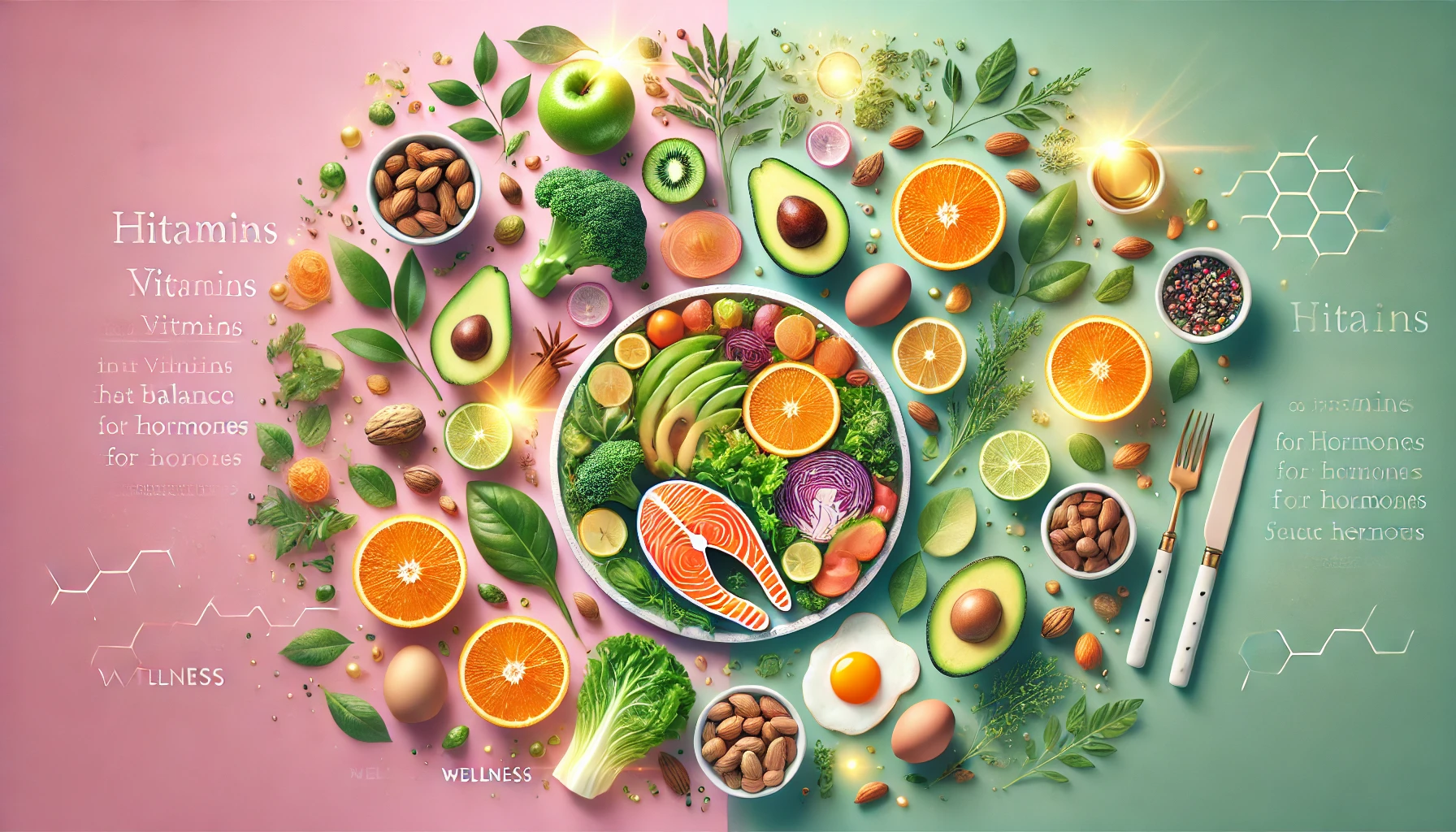Hormonal balance is essential for overall health and well-being in females. Hormones regulate critical functions such as metabolism, mood, reproductive health, and energy levels. When hormones become imbalanced, symptoms like fatigue, mood swings, and irregular cycles can arise. Thankfully, certain vitamins can help restore balance and improve quality of life. Let’s explore the top vitamins to balance hormones for females and how to incorporate them into your daily routine.
The Role of Vitamins to Balance Hormones for Females
Vitamins are essential nutrients that serve as building blocks for many bodily functions, including hormone production and regulation. They act as co-factors in enzymatic reactions and help maintain the health of the glands responsible for hormone secretion, such as the thyroid and adrenal glands. A vitamin-rich diet ensures that the body has the tools it needs to maintain hormonal harmony.
Top Sources of Vitamins to Balance Hormones for Females
Vitamin D
Vitamin D, often referred to as the “sunshine vitamin,” plays a crucial role in regulating estrogen and progesterone levels. It also supports the immune system and bone health. Low levels of vitamin D are linked to hormonal imbalances, particularly in conditions like polycystic ovary syndrome (PCOS).
Sources: Salmon, egg yolks, fortified dairy products, and sunlight exposure.
Vitamin B6
This vitamin supports the production of serotonin, a mood-stabilizing hormone. It also helps regulate progesterone levels, making it beneficial for managing premenstrual syndrome (PMS) symptoms.
Sources: Bananas, chickpeas, poultry, and fortified cereals.
Vitamin E
Vitamin E is a powerful antioxidant that helps reduce oxidative stress, which can interfere with hormone production. It’s particularly helpful in alleviating symptoms of menopause and PMS.
Sources: Nuts, seeds, spinach, and sunflower oil.
Vitamin C
Vitamin C supports the adrenal glands, which produce stress hormones like cortisol. Proper cortisol regulation is vital for maintaining hormonal balance. This vitamin also boosts overall immunity and skin health.
Sources: Citrus fruits, bell peppers, strawberries, and broccoli.
Vitamin A
Essential for the proper functioning of the thyroid gland, vitamin A plays a significant role in balancing thyroid hormones. It also supports skin health and vision.
Sources: Sweet potatoes, carrots, spinach, and liver.
Vitamin K2
Vitamin K2 aids in calcium regulation, which is important for hormone secretion and bone health. It also supports cardiovascular health, which is linked to proper hormone balance.
Sources: Fermented foods, egg yolks, and grass-fed dairy products.
How Vitamins to Balance Hormones for Females Improve Overall Health
- Opt for Whole Foods: Focus on fresh, nutrient-dense foods like fruits, vegetables, nuts, seeds, and lean proteins.
- Consider Supplements: If dietary intake isn’t sufficient, consult a healthcare provider for appropriate vitamin supplements.
- Stay Consistent: Regular consumption of these vitamins is key to seeing long-term benefits.
Lifestyle Tips to Enhance Vitamin Absorption
- Pair Vitamins with Healthy Fats: Vitamins like A, D, E, and K are fat-soluble and are better absorbed when consumed with fats.
- Hydrate Adequately: Proper hydration supports overall nutrient absorption.
- Limit Processed Foods: They can interfere with hormonal health by promoting inflammation.
FAQs
Vitamin D and B6 are particularly effective, but a combination of multiple vitamins works best for overall balance.
Supplements can help but should not replace a nutrient-rich diet. Whole foods offer additional benefits.
Consistency is key. Most people notice improvements within a few weeks to a couple of months.
Yes, vitamins like E and D can alleviate hot flashes, mood swings, and other menopausal symptoms.
Excessive intake of certain vitamins can lead to toxicity. Always consult a healthcare provider before starting supplements.
Blood tests, saliva tests, and symptoms like fatigue, irregular cycles, or mood swings can indicate hormonal imbalances.
Conclusion
Balancing hormones is a crucial aspect of female health, and vitamins play an integral role in achieving this balance. By incorporating essential vitamins like D, B6, and E into your diet, you can support hormonal harmony, improve energy levels, and enhance overall well-being. Remember, a balanced diet combined with a healthy lifestyle is the foundation of long-term hormonal health. Start nourishing your body today



